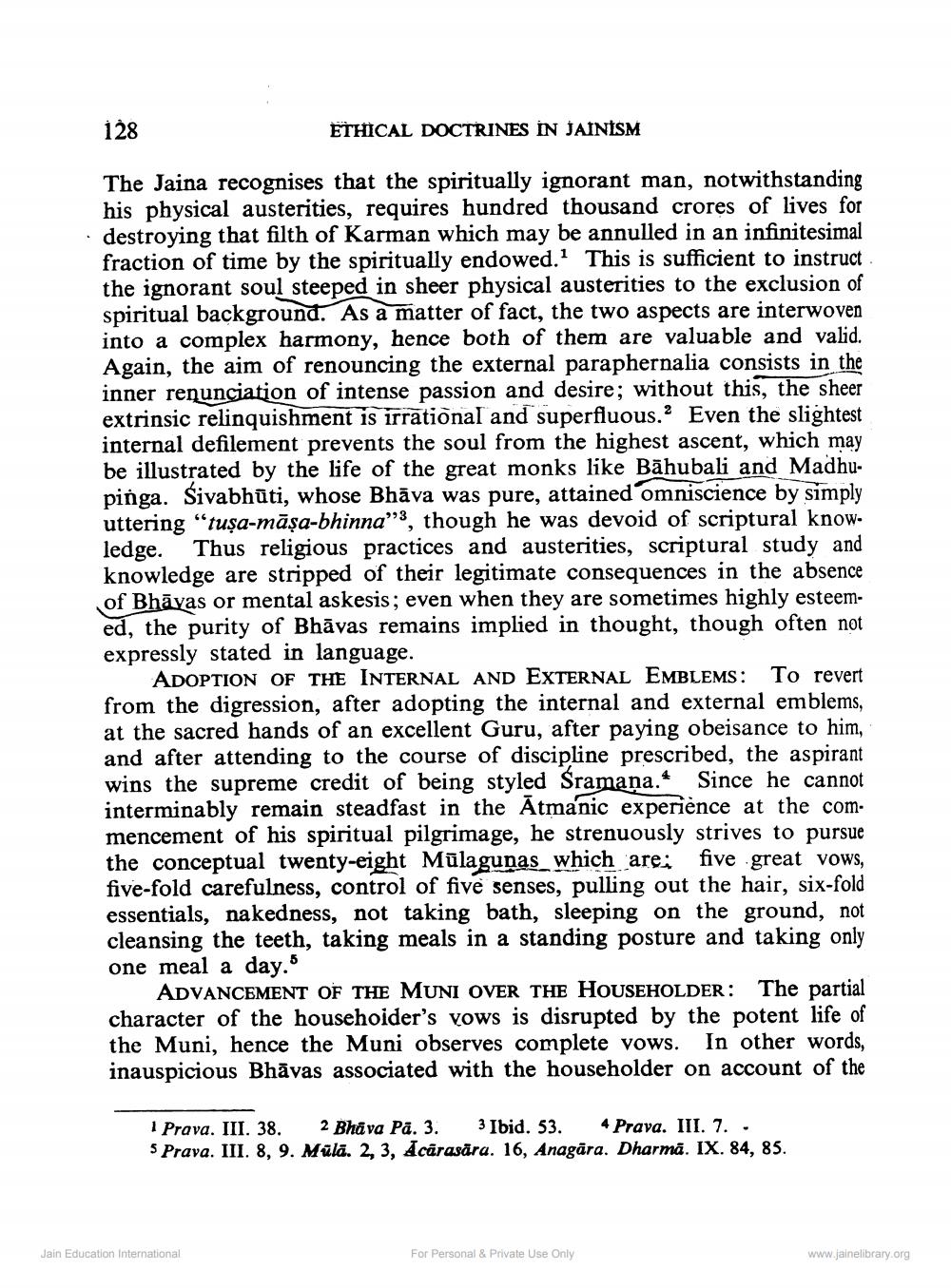________________
128
ETHICAL DOCTRINES IN JAINISM
The Jaina recognises that the spiritually ignorant man, notwithstanding his physical austerities, requires hundred thousand crores of lives for destroying that filth of Karman which may be annulled in an infinitesimal fraction of time by the spiritually endowed. This is sufficient to instruct the ignorant soul steeped in sheer physical austerities to the exclusion of spiritual background. As a matter of fact, the two aspects are interwoven into a complex harmony, hence both of them are valuable and valid. Again, the aim of renouncing the external paraphernalia consists in the inner renunciation of intense passion and desire; without this, the sheer extrinsic relinquishment is irrational and superfluous. Even the slightest internal defilement prevents the soul from the highest ascent, which may be illustrated by the life of the great monks like Bāhubali and Madhupinga. Sivabhūti, whose Bhāva was pure, attained omniscience by simply uttering "tuşa-māşa-bhinna"3, though he was devoid of scriptural knowledge. Thus religious practices and austerities, scriptural study and knowledge are stripped of their legitimate consequences in the absence of Bhāvas or mental askesis; even when they are sometimes highly esteemed, the purity of Bhāvas remains implied in thought, though often not expressly stated in language.
ADOPTION OF THE INTERNAL AND EXTERNAL EMBLEMS: To revert from the digression, after adopting the internal and external emblems, at the sacred hands of an excellent Guru, after paying obeisance to him, and after attending to the course of discipline prescribed, the aspirant wins the supreme credit of being styled Sramana. Since he cannot interminably remain steadfast in the Ātmanic experience at the commencement of his spiritual pilgrimage, he strenuously strives to pursue the conceptual twenty-eight Mūlagupas which are; five great vows, five-fold carefulness, control of five senses, pulling out the hair, six-fold essentials, nakedness, not taking bath, sleeping on the ground, not cleansing the teeth, taking meals in a standing posture and taking only one meal a day."
ADVANCEMENT OF THE MUNI OVER THE HOUSEHOLDER: The partial character of the househoider's vows is disrupted by the potent life of the Muni, hence the Muni observes complete vows. In other words, inauspicious Bhāvas associated with the householder on account of the
Prava. III. 38. 2 Bhäva Pa. 3. 3 Ibid. 53. 4 Prava. III. 7. . 5 Prava. III. 8, 9. Müla. 2, 3, Acarasära. 16, Anagara. Dharma. IX. 84, 85.
Jain Education International
For Personal & Private Use Only
www.jainelibrary.org




